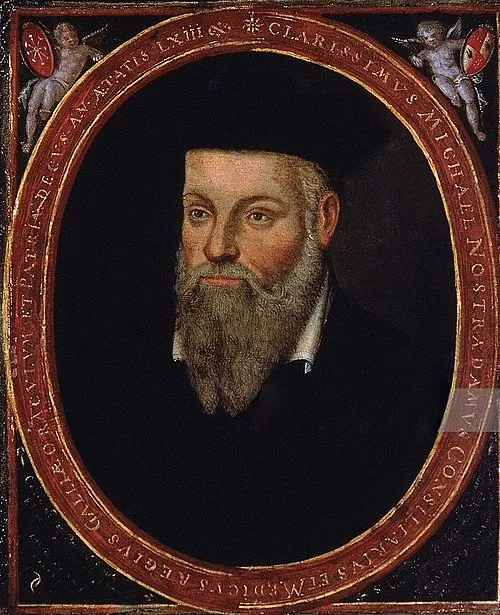
Name: Nostradamus
Birth Year: 1503
Death Year: 1566
Nationality: French
Profession: Astrologer and author
Notable Work: Les Prophéties
Nostradamus: The Astrologer Who Predicted the Future
Nostradamus, born Michel de Nostredame on December 14, 1503, in Saint-Rémy-de-Provence, France, is one of history's most famous astrologers and prophets. He has captured the imagination of people for centuries with his cryptic predictions and enigmatic writings. Nostradamus's legacy as an author and seer has rendered him a subject of fascination across various cultures, with his most notable work being 'Les Prophéties', a collection of 942 poetic quatrains.
Early Life and Education
Nostradamus was born into a Jewish family, but they converted to Christianity when he was a young child. This cultural background may have influenced his diverse approach to astrology and prophecy. He studied medicine at the University of Avignon and eventually practiced as a physician. His medical career, characterized by his innovative treatments against the plague, gained him recognition and respect among his contemporaries.
The Transition to Prophecy
It was not until the late 1540s that Nostradamus turned his attention to astrology and fortune-telling. His first major work, 'Les Prophéties', was published in 1555. The book was a compilation of predictions for the future, written in a highly poetic and coded language. Nostradamus's style included an unusual blend of historical references and a sprinkling of astrological symbols, making his predictions both intriguing and elusive.
Notable Predictions
Over the years, several of Nostradamus’s prophecies have been interpreted as foreseeing significant historical events, such as the French Revolution, World War II, and even the events of September 11, 2001. Critics argue that his quatrains are so vague that they can be interpreted in numerous ways, allowing believers to find connections to any event in history. However, the sheer volume and consistency of interest in his prophecies suggest a deeper cultural resonance.
The Legacy of Nostradamus
Nostradamus passed away on July 2, 1566, in Salon-de-Provence, France. His death marked the end of a complex life that intertwined medical science with mystical philosophy. Refusing to be solely categorized as an astrologer or a physician, Nostradamus has become a cultural icon. His work has inspired countless books, films, and documentaries, affirming his place in both popular and scholarly discourse.
Contemporary Relevance
Today, Nostradamus remains a pivotal figure in discussions about prophecy and astrology. His work continues to be studied not only for its historical significance but also for its cultural impact on art, literature, and modern interpretations of fate and destiny. Nostradamus's enigmatic personality and the lasting allure of his prophecies ensure that his life and work will remain a topic of conversation for generations to come.



